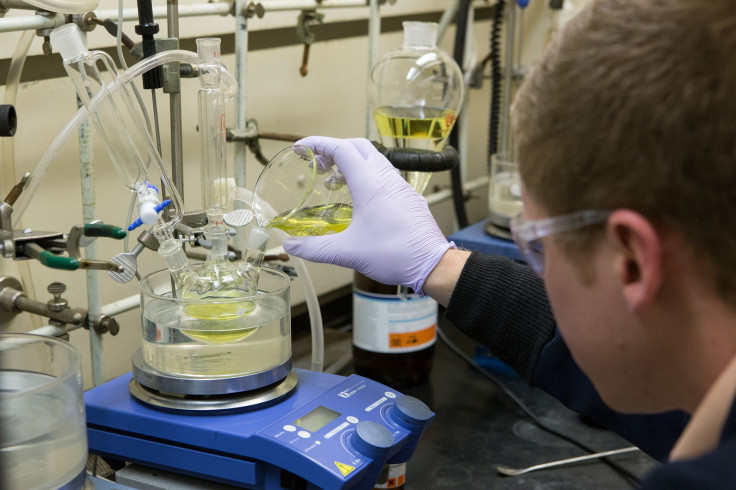Treating Low Testosterone Levels May Improve Physical Activity, Sexual Function In Older Men

A new study published in The New England Journal of Medicine offers new evidence regarding the benefits of testosterone treatment in older men.
"In recent years, talk about low testosterone and its treatments have become part of the public discussion," study co-author Dr. Mark E. Molitch, a Northwestern Medicine endocrinologist, said in a press release. "Yet questions have always lingered about the treatment's effectiveness and safety. I believe the results of this large, nationwide study will provide doctors and patients answers and guidance they've been looking for."
Men's serum (total) testosterone levels decrease as they age, but up until now studies have been skeptical of any benefits associated with treatment aimed at raising their hormone levels. Some men receiving treatment in the past have reported an increase in muscle mass, but less have seen an improvement in more common conditions associated with low testosterone levels: reduced mobility, physical activity, sexual function, and energy.
To learn more, the present study assigned 790 men aged 65 and older to one or more testosterone trials — the Sexual Function Trial, the Physical Function Trial, or the Vitality Trial. Men, who all had moderately low serum testosterone compared to healthy men aged 19 to 40, either received a testosterone gel (AbbVie) or placebo gel treatment for one year. The initial dose started at 5 grams per day, and it was adjusted afterward in an attempt to keep levels within the mid to normal range for young men. Study authors checked serum levels again one, two, three, six, and nine months later.
The results showed increased serum testosterone levels to the mid-normal range for men 19 to 40 was associated with significantly increased sexual activity, as well as significantly increased sexual desire and erectile function. Physical activity did not differ significantly between the two treatment groups in the Physical Function trial, but it did for men receiving testosterone in all three trials. And men who received testosterone reported "slightly better mood and lower severity of depressive symptoms than those who received placebo." Men receiving testosterone also experienced more energy.
More importantly, Molitch said, there was no evidence of an increase in heart of other cardiovascular issues in men receiving testosterone treatment compared to a placebo. This finding held up even a year after the study ended.
The study authors believe the testosterone trials "had certain strengths," from the number of men enrolled to the study design and overall participant retention; however, they added a "major limitation" is that the results only apply to men aged 65 and older with moderately low testosterone levels, about 275 nanogram (ng) per deciliter. And the latter is what prompts Dr. Eric S. Orwoll to say "little has changed" to alter the original conclusions of testosterone treatment.
"The results show that testosterone therapy did yield certain benefits, but at this point their clinical importance is uncertain," Orwoll wrote. "Therapy was not a panacea, and the findings alone might be insufficient to support a decision to initiate testosterone therapy in symptomatic older men."
Orwoll added men's estradiol levels improved alongside their testosterone, where estradiol has been linked to "key health variables in men" like sexual function. But whether men's changes were linked to increased estradiol is still unclear.
"The report [...] is likely to stimulate controversy and to engender additional research questions — as did the Women’s Health Initiative with respect to estrogen replacement herapy," Orwoll wrote. "Nevertheless, it is a landmark study in the field of men’s health and no doubt a bell-wether for additional important contributions from the Testosterone Trials."
Source: Snyder PJ, et al. Effects of Testosterone Treatment in Older Men. The New England Journal of Medicine. 2016.
Orwoll ES. Establishing a Framework — Does Testosterone Supplementation Help Older Men? The New England Journal of Medicine. 2016.



























